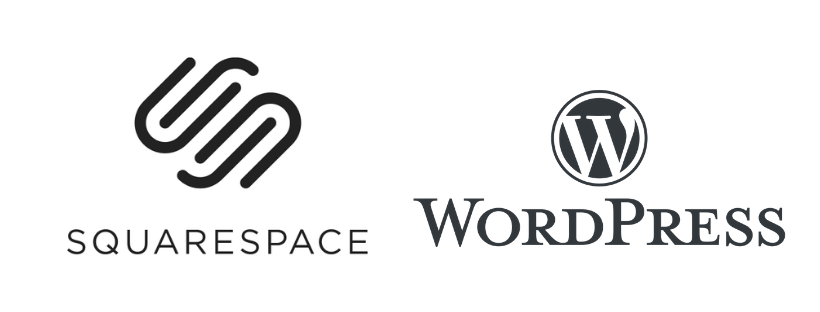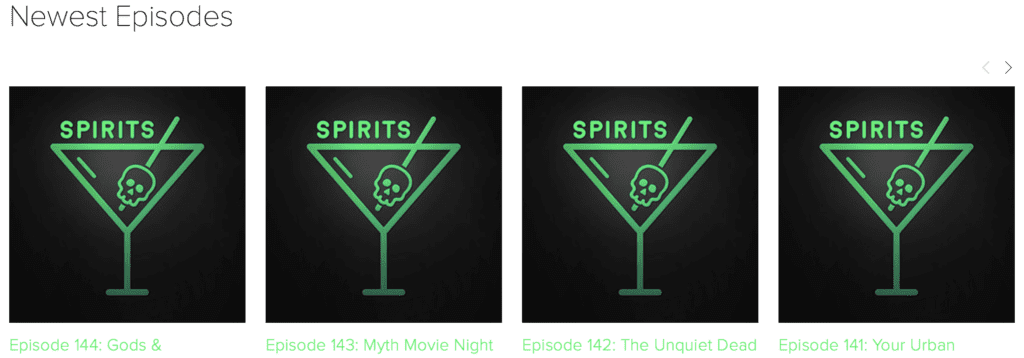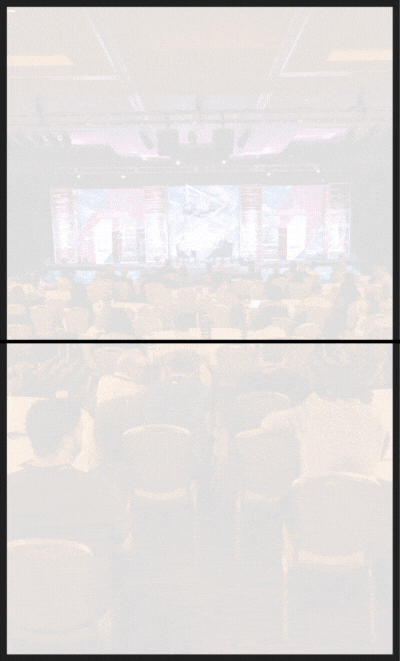![]()
![]()
Ely! Podcast Movement is over, and our audio fiction track went so well! But now I am very ready for sleep.
![]() You can find me in my underground cave taking a nap for the next 100 years.
You can find me in my underground cave taking a nap for the next 100 years.
![]() So, we’ve told the people about talking to the press–now, let’s talk to them about talking to everyone else. It’s 2019 y’all: you have to have a website. Ely, are websites negotiable things to have in this year of our lord two thousand and nineteen?
So, we’ve told the people about talking to the press–now, let’s talk to them about talking to everyone else. It’s 2019 y’all: you have to have a website. Ely, are websites negotiable things to have in this year of our lord two thousand and nineteen?
![]() Let me pull out my trusty little megaphone: NO. You have created something that literally lives in digital form! You need a website for your podcast. You don’t have to spend money on it if you don’t currently have the budget for it; there are plenty of podcast websites at free domains like wordpress.com that are respectable, fun, professional, and fairly simple to set up.
Let me pull out my trusty little megaphone: NO. You have created something that literally lives in digital form! You need a website for your podcast. You don’t have to spend money on it if you don’t currently have the budget for it; there are plenty of podcast websites at free domains like wordpress.com that are respectable, fun, professional, and fairly simple to set up.
![]() I used a free WordPress for the first year of writing reviews, and it was just fine for me. But not every free website is created equal–which is to say, your Libsyn page is not your website! Your Pinecast page is not your website! You need a REAL website where people can find all the information they need about your podcast. There’s a lot more that listeners will need than you think.
I used a free WordPress for the first year of writing reviews, and it was just fine for me. But not every free website is created equal–which is to say, your Libsyn page is not your website! Your Pinecast page is not your website! You need a REAL website where people can find all the information they need about your podcast. There’s a lot more that listeners will need than you think.

![]() I’ve had a ton of people ask why they need a “real” website. It takes time and energy and sometimes a little money if you want to buy a domain. The benefits of a website cannot be overstated. Sure, the press will use it (we love a good website), but the biggest benefit of having a podcast website that isn’t auto-generated from your host is that it improves discoverability.
I’ve had a ton of people ask why they need a “real” website. It takes time and energy and sometimes a little money if you want to buy a domain. The benefits of a website cannot be overstated. Sure, the press will use it (we love a good website), but the biggest benefit of having a podcast website that isn’t auto-generated from your host is that it improves discoverability.
Remember that you aren’t just trying to reach the audience who already listen to podcasts; you absolutely want to be reaching out to the people who haven’t listened to podcasts before because your ideal listener may be in there. In order to hook them appropriately, you have to reach out to them from beyond a podcast host auto-generated page that won’t give them the information they’ll be looking for and will mostly overwhelming or confusing.
![]() Absolutely. People are always complaining about discoverability until it means they have to do a little work! C’mon, folks. So, with the why out of the way, let’s talk about the how. We’ve told you that you can use a platform like WordPress, but you can also use a platform like Squarespace. I’m pretty sure everyone who listens to podcasts can find a Squarespace coupon code with no problem. Each one of those platforms will have wildly different setup methods, so I think we should just jump into structure and content. One of my favorite podcast websites is the one for ars PARADOXICA, and I’ll be referencing it a lot for this convo. Ely, do you have any faves?
Absolutely. People are always complaining about discoverability until it means they have to do a little work! C’mon, folks. So, with the why out of the way, let’s talk about the how. We’ve told you that you can use a platform like WordPress, but you can also use a platform like Squarespace. I’m pretty sure everyone who listens to podcasts can find a Squarespace coupon code with no problem. Each one of those platforms will have wildly different setup methods, so I think we should just jump into structure and content. One of my favorite podcast websites is the one for ars PARADOXICA, and I’ll be referencing it a lot for this convo. Ely, do you have any faves?

![]() I love the website for Spirits. Look at the cute skulls in martini glasses! The branding is so cute and memorable. You know what’s memorable and not cute? Autoplaying media. Please, never, ever have your website auto-play any kind of media when someone visits. It’s 2019, not 2005. Instead, embed your episodes into your website so people can choose to play directly from there. Spirits has the newest four episodes and ars PARADOXICA has a teaser on the home page, which is SO CLEVER.
I love the website for Spirits. Look at the cute skulls in martini glasses! The branding is so cute and memorable. You know what’s memorable and not cute? Autoplaying media. Please, never, ever have your website auto-play any kind of media when someone visits. It’s 2019, not 2005. Instead, embed your episodes into your website so people can choose to play directly from there. Spirits has the newest four episodes and ars PARADOXICA has a teaser on the home page, which is SO CLEVER.

![]() The teaser is a great idea for fiction specifically; the newest few episodes is a great idea for episodic nonfiction specifically. I love that for ars, you get a preview of the story to come, while for Spirits, you get a chance to choose the episode that looks most interesting to you. Something I see pretty often is more of a landing page, something without audio embeds. I’m not wild about these–Ely, how do you feel about them?
The teaser is a great idea for fiction specifically; the newest few episodes is a great idea for episodic nonfiction specifically. I love that for ars, you get a preview of the story to come, while for Spirits, you get a chance to choose the episode that looks most interesting to you. Something I see pretty often is more of a landing page, something without audio embeds. I’m not wild about these–Ely, how do you feel about them?

![]()

![]() I’m lukewarm on them. I can understand the usefulness of a landing page for very specific reasons: a new podcast that hasn’t released anything yet, for instance. So, I don’t think a landing page is the end of the world, but they’re certainly not the best way to help people discover you. You need to hook your prospective audience right from the start and that means giving them content up front to play that they don’t have to click through a bunch of buttons to get to. That also means being willing to guide them on how to listen to you–remember, you’re also speaking to the people who may not listen to podcasts regularly or at all. I love a listening map!
I’m lukewarm on them. I can understand the usefulness of a landing page for very specific reasons: a new podcast that hasn’t released anything yet, for instance. So, I don’t think a landing page is the end of the world, but they’re certainly not the best way to help people discover you. You need to hook your prospective audience right from the start and that means giving them content up front to play that they don’t have to click through a bunch of buttons to get to. That also means being willing to guide them on how to listen to you–remember, you’re also speaking to the people who may not listen to podcasts regularly or at all. I love a listening map!
![]() Listening! Map!!! A listening map is a great way to tell your listeners where they should start listening to your podcast. For fiction, this might mean a “START HERE” page, like what ars PARADOXICA has. It can be useful to have “the story so far” episodes or summaries if you want listeners to jump in now versus listening to your backlog. For nonfiction, I’m a big fan of have 5-10 Best Of episodes–especially if they’re chosen by listeners. If you have a lot of inside jokes, I’d also recommend a set of episodes that give the “origin” of those jokes.
Listening! Map!!! A listening map is a great way to tell your listeners where they should start listening to your podcast. For fiction, this might mean a “START HERE” page, like what ars PARADOXICA has. It can be useful to have “the story so far” episodes or summaries if you want listeners to jump in now versus listening to your backlog. For nonfiction, I’m a big fan of have 5-10 Best Of episodes–especially if they’re chosen by listeners. If you have a lot of inside jokes, I’d also recommend a set of episodes that give the “origin” of those jokes.

![]() Clearly, for a podcast, the most important content to have on your website is your audio. But you can’t forget everything that went into the making of that audio, and that means a cast and crew or team page. You need a full listing of people who regularly work on your podcast, and don’t forget to include your consultants and transcriptionists. If people have bit parts that only show up in one episode, or you hired a freelancer to work on one episode, include their information in the show notes of the episode, as well as in the episode credits themselves. And don’t forget their socials! You never know when someone might get hired for the work they did on your podcast.
Clearly, for a podcast, the most important content to have on your website is your audio. But you can’t forget everything that went into the making of that audio, and that means a cast and crew or team page. You need a full listing of people who regularly work on your podcast, and don’t forget to include your consultants and transcriptionists. If people have bit parts that only show up in one episode, or you hired a freelancer to work on one episode, include their information in the show notes of the episode, as well as in the episode credits themselves. And don’t forget their socials! You never know when someone might get hired for the work they did on your podcast.
![]() And while we’re on socials. Please. Please just put your podcast’s socials on your website. Why do people not do this? I’m so confused. I’m so confused and so tired. Please let people find your podcast on socials. In fact, everything the listener should need to support you–your socials, your merch, your Patreon/etc.–should be on your website and clearly listed. I’m a big fan of a big ol’ “SUPPORT” link right on your menu bar.
And while we’re on socials. Please. Please just put your podcast’s socials on your website. Why do people not do this? I’m so confused. I’m so confused and so tired. Please let people find your podcast on socials. In fact, everything the listener should need to support you–your socials, your merch, your Patreon/etc.–should be on your website and clearly listed. I’m a big fan of a big ol’ “SUPPORT” link right on your menu bar.
![]()
![]() Listeners can also support you by listening, so please, for the love of everything podcasting, put links to a few platforms and a link to your RSS feed in one location on your website. I don’t understand people who don’t give a link to the feed; you never know what podcatcher or method someone is using to listen to your show! My preferred amount of links to podcast platforms is around three, plus the RSS feed (I usually go for the top three of Apple, Google, and Spotify), just to keep it uncluttered.
Listeners can also support you by listening, so please, for the love of everything podcasting, put links to a few platforms and a link to your RSS feed in one location on your website. I don’t understand people who don’t give a link to the feed; you never know what podcatcher or method someone is using to listen to your show! My preferred amount of links to podcast platforms is around three, plus the RSS feed (I usually go for the top three of Apple, Google, and Spotify), just to keep it uncluttered.
![]() I think the biggest key for making your website is just to think about what people should know. What would you want to see on a podcast website? How would you want to see it organized? That’s a great way to conceptualize how you should move forward.
I think the biggest key for making your website is just to think about what people should know. What would you want to see on a podcast website? How would you want to see it organized? That’s a great way to conceptualize how you should move forward.
![]() When you’re thinking about what you would want to see, also think about what other people might need to see. Use resources like this one to make sure your website is accessible, provide transcripts right on your episode page (you should have transcripts as part of your production workflow!), and think about other ways to make your podcast accessible. Love and Luck, for example, have created YouTube videos with a static logo that have captions for the audio.
When you’re thinking about what you would want to see, also think about what other people might need to see. Use resources like this one to make sure your website is accessible, provide transcripts right on your episode page (you should have transcripts as part of your production workflow!), and think about other ways to make your podcast accessible. Love and Luck, for example, have created YouTube videos with a static logo that have captions for the audio.
![]() Accessibility should ALWAYS be a priority!
Accessibility should ALWAYS be a priority!
![]()
Help your audience discover your art, and remember that your ideal audience may not be exactly like you.



Join the Movement